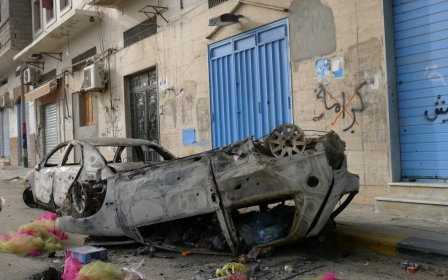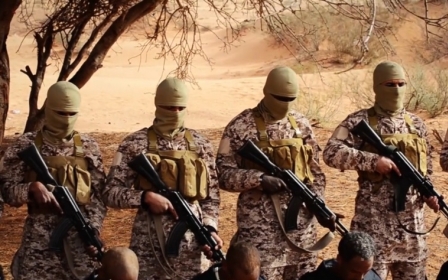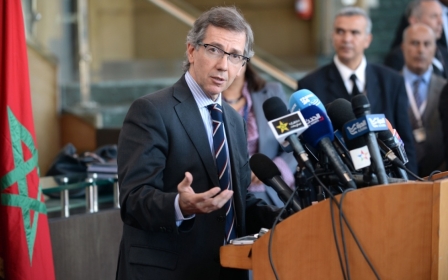Libya's Tripoli parties reject 'shocking' UN peace draft

A draft proposal put forth by UN envoy Bernardino Leon to end Libya's political crisis has invited criticism from political parties in the capital Tripoli.
The Tripoli-based parliament said that it rejects the proposal by the UN envoy.
The General National Congress (GNC) "completely rejects the draft proposal as it does not provide an objective, comprehensive, balanced solution," parliament spokesman Omar Humaidan said at a press conference on Tuesday.
Unveiled by Leon on Monday, the draft calls for a two-year transitional period and for all parties to respect the results of a parliamentary election.
Its fourth governing principle states that the House of Representatives (HoR), the internationally-recognised parliament that is locked in a struggle for legitimacy with the GNC, is “the only legislative authority in the country”.
The HoR was ruled unconstitutional by Libya’s High Court last November, after a tense session in the GNC-controlled capital Tripoli.
The draft does not mention the GNC.
The proposal also calls for extending the mandate of the country's constitution-drafting assembly.
In his cover letter, Leon acknowledged that the draft would not “meet all the expectations of all the parties”.
Humaidan on Tuesday called on the UN mission to "stand at equal distance from all parties and reconsider the mechanism of its operations to support the political course in Libya."
The Justice and Building Party, the Muslim Brotherhood’s franchise in Libya, was also critical of the proposal.
"The draft is shocking and disappointing," the party said in a statement.
"It ignores all the initiatives and opinions put forward during the [UN-sponsored] dialogue," it said, going on to call on the UN envoy to withdraw "the flawed and unbalanced draft".
According to the draft proposal, militias active in Libya’s cities would be replaced by a national army and police force.
However, with the army composed partly of state-funded militia groups, there would be fierce debate as to which groups and battalions could be considered part of the official army.
The HoR has yet to issue a statement as to whether it accepts the proposal.
If the draft proposal had achieved the agreement of both parliaments, Leon had planned to convene a “new and final” round of consultations aimed at finding a political solution to the deadlock and violence that has plagued Libya for years.
Middle East Eye propose une couverture et une analyse indépendantes et incomparables du Moyen-Orient, de l’Afrique du Nord et d’autres régions du monde. Pour en savoir plus sur la reprise de ce contenu et les frais qui s’appliquent, veuillez remplir ce formulaire [en anglais]. Pour en savoir plus sur MEE, cliquez ici [en anglais].




